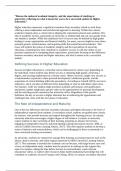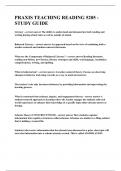Essay
“Discuss the notion of academic integrity, and the expectations of studying at university; reflecting on what it means for you to be a successful student in Higher Education.”
- Institution
- Birmingham City University (BCU)
Please use as a guide as this is a submitted essay and will flag.
[Show more]




